Remembering McNamara
Once again we were in a briefing on body counts, and he was in charge with the latest figures, and once again, any personal responsibility for the deaths seemed to elude him. Finally one understands the desperate shrillness of the anti-war movement, as an attempt to tug at the arm if not the inaccessible soul of this impervious man.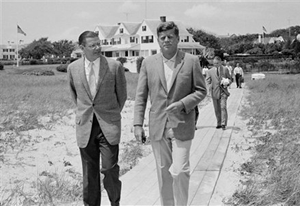
In memory of Robert McNamara, we post this article by Robert Scheer, published in 1995 in the Los Angeles Times.
Back at his retreat on Martha’s Vineyard, where he headed directly after San Diego, the last stop on his national book tour, Robert Strange McNamara must be satisfied. After a month of talks shows, speeches and interviews, his book was solidly at the top of the bestseller list, and none of his critics had landed a glove.
Despite confirming the nation’s darkest suspicions about the irrationality of what was once widely known as “McNamara’s war,” the man seemed, at the California end of his tour, to be having fun.
Once again, the familiar, erect and always confident figure of McNamara stood before an attentive audience with a hoarse-voiced answer for everything. But this time, millions were not dying, and respectful World Affairs Council audiences in San Francisco and Los Angeles, many of whom had themselves supported the war, now laughed easily at his jokes.
Best-selling authors do well on the lecture circuit, no matter their transgressions and crimes, as both Henry Kissinger and G. Gordon Liddy have demonstrated. And, audiences seem to recognize, McNamara is someone with the uncommon courage to admit that he was “terribly wrong.”
He is high energy, informed, good humored and quick with the Washington power connection. Katharine Graham, the owner of the Washington Post, where he has been a director, gave him “a wonderful book party,” and his other friends in the capital have been “most supportive.”
About to turn 79, he has been there and done it all-Ford Motor Co. president, Defense Department secretary and chairman of the World Bank, where he always climbed the 12 floors to his office. He walks or runs miles every day and seems not much changed from the time three decades ago when he daily rationalized a war that he now admits was without purpose.
Easily shuttling between memories of Henry Ford, John F. Kennedy and Deng Xiao-ping, it seems almost that history exists for the benefit of his performance. Never is there the slightest suggestion that he is not to be trusted with yet another opportunity to manage our affairs. He exudes an air of decency and social concern. So what that he once went wrong? Even then, he notes often, Lyndon Johnson granted him the Medal of Freedom, “the nation’s highest civilian honor.”
Confession is a miraculous balm, and it is difficult to remain angry with McNamara. To a dwindling number who yet remember, such as the GI’s widow who attended his San Francisco talk, he’s still something of a war criminal who aided energetically in the death of almost 60,000 men like her husband. And a Vietnamese woman there was shocked that McNamara had not once mentioned the millions of Vietnamese who died in his war. But he’s a very forceful public lecturer, and by the end of his talk, even the war widow seemed less outraged than numbed.
McNamara remains possessed of an incessant optimism that is fueled by defeat and easily accommodates error. On a plane ride down to Los Angeles, he asked what I thought of his talk, and I noted the Vietnamese casualty omission. “I couldn’t agree with you more!” he roared, head reared back and finger puncturing the air, “3.2 million, those are the latest figures from Hanoi, the French press published them last week.”
Once again we were in a briefing on body counts, and he was in charge with the latest figures, and once again, any personal responsibility for the deaths seemed to elude him. Finally one understands the desperate shrillness of the anti-war movement, as an attempt to tug at the arm if not the inaccessible soul of this impervious man. He did, however, incorporate the figure for Vietnamese dead as a “by the way” in his talk the next day at L.A’s Biltmore Hotel.
What a contradiction this man presents. He tears up on television but can go on for hours about the logistics of the war without the scantiest reference to the human pain that was caused.
He is an elitist of the worst sort, contemptuous of those of lesser rank who might have corrected his egregious wrongs. But he is also personally unpretentious; he schleps his own luggage, waits for his plane in the common terminal waiting area-not VIP lounges-and rides coach. He is a strong advocate for the environment of this country, although he continues to show no real interest in the ecological destruction of Vietnam.
No one speaks more eloquently in support of public education, and he expresses deeply felt concern that the University of California, which gave this Depression kid a big start in life as a student at UC Berkeley, is now starved for funds.
“I would not have been able to go to a first-class college had it not been for the fact that Berkeley was essentially free. I and others like me then moved into positions in the society where we could pay that back.”
If there is a center to McNamara, it is to be found in the expectations raised by the university and the opportunities it offered for the talented to rise. His is the peculiar American elitism born of blind faith in the meritocracy, and he evidences not the slightest doubt that this former whiz kid is still the one to be consulted about our thorniest problems:
“Read my 11 points on why we went wrong in Vietnam and you’ll know why we shouldn’t go into Bosnia,” or, “The most important section to read in my book is the appendix on nuclear weapons-that problem is still with us.”
True enough, but how did a man so bright and obviously well-intentioned go so wrong before? “We didn’t know,” is the awkward answer offered to interviewers and audiences by a man who prides himself on always being in the know. Because of the ravages of McCarthyism, the State Department lacked expertise on China and was oblivious to the historic tensions between that country and Vietnam. Nor were they aware of the depths of Vietnamese nationalism as represented by the people we defined as the enemy.
When asked about the many scholars and even some people in the government who did know better, McNamara got a bit impatient, suggesting that an interviewer should know such people were too low down the line to be noticed: “Yeah, when you are the President and the Secretary and the National Security Adviser, you just can’t be in touch with all these scholars in the country. We just didn’t have at the senior level the people we should have had.”
Finally, why didn’t he listen to all of those people, his son included, in the anti-war movement?
“I think in a sense the protesters were right, I was wrong, but you’ve got to understand where I came from.”
Where he came from, he concedes in a moment of reflection, is Plato’s Republic, and the assurance that the very best, like him, will be selected and should be heeded. The elitism, born of drive and talent that he has in ample quantities, is in his blood to this day.
To be fair, McNamara has dwelt in the highest corridors of power, and he knows that he compares very well to the competition. If you think he and Johnson were wild on Vietnam, you should have heard from the hawks on their right. It is McNamara’s proudest boast that he stopped our country’s destruction of Vietnam just this side of genocide, if not nuclear war.
When the charge is raised that he could have done more to win the war, for the first time he gets incensed, as befits one who was willing to march his country to the brink, but who prides himself on a sense of limits:
“Look, we dropped three to four times the tonnage on that tiny little area as were dropped by the Allies in all the theaters in World War II over a period of five years. It was unbelievable. We killed — there were killed — 3,200,000 Vietnamese, excluding the South Vietnamese military. My God! The killing, the tonnage — it was fantastic. The problem was that we were trying to do something that was militarily impossible-we were trying to break the will; I don’t think we can break the will by bombing short of genocide.”
When he speaks, a frequently asked question is whether he will share profits with American veterans or the Vietnamese. His answer is that two-thirds of the profit is needed to cover research costs, and the rest will be divided to benefit a long list of mostly domestic charities.
McNamara has never visited Vietnam since his time in office and seems disconnected from developments in a country whose fate once so preoccupied him. If he feels any guilt for the carnage he wrought, it is quickly obscured by his obsession with the pragmatism of the moment. His is clearly a life unexamined, other than for items on an ever-expanding resume.
Which is not to say he is without social conscience. The infuriating thing about McNamara is that he is clearly a good man who committed dastardly wrongs. How is it that one can order carpet-bombing of a massive peasant population and then turn around and become an advocate for the poor at the World Bank, all in one lifetime?
The book we need to read, but which he will never write, is about the capacity of decent people to accommodate evil. But introspection is not McNamara’s style.
Although of advanced age, McNamara’s thoughts remain rooted in the secular. Once a Presbyterian elder, he no longer maintains church affiliation, and when asked about his enduring social concerns, they seem rooted in the traumas and ideals of his youth: “I grew up in the Depression, a time when 25% of the adult males of this country were unemployed. Classmates had parents who committed suicide because they couldn’t provide for their family. Then I went to sea as a sailor (merchant marine), and I saw the conditions, the labor that was operating out there, absolutely disgraceful conditions, so I have never forgotten those days.”
He expressed shock that some of these problems persist today: “I think it is an absolute disgrace that in the capital of the richest country in the world, the infant mortality rate is twice that of Castro’s Cuba. I strongly believe in private enterprise, but I strongly believe in the need for government participation.”
Given his passion for social issues, he said he would have much preferred a Cabinet position running Health, Education and Welfare instead of Defense in the Kennedy and Johnson administrations.
It’s a bit late, but one wondered how different this country might now be if the enormous energy, talent and conviction of Robert Strange McNamara had been unleashed in the War on Poverty instead of the war in Vietnam.
He nodded in agreement and then with an “oh, well” shrug, shook my hand, grabbed his bag from the overhead and, as is his style, pushed to be one of the first off the plane.
Originally published under the title “Born of Blind Faith — Robert McNamara believed he would ascend in a meritocracy. And with good reason. So what went so `terribly wrong’?” in the Los Angeles Times on May 16, 1995.
Your support matters…Independent journalism is under threat and overshadowed by heavily funded mainstream media.
You can help level the playing field. Become a member.
Your tax-deductible contribution keeps us digging beneath the headlines to give you thought-provoking, investigative reporting and analysis that unearths what's really happening- without compromise.
Give today to support our courageous, independent journalists.
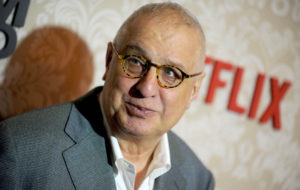
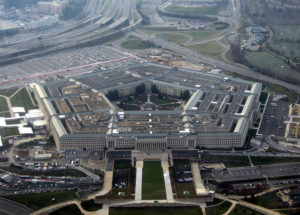
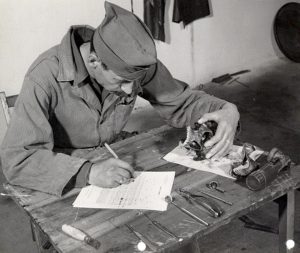
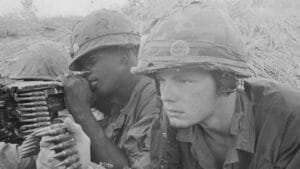
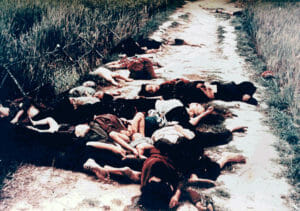
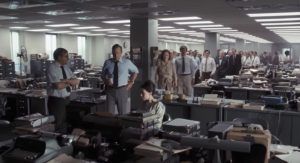
You need to be a supporter to comment.
There are currently no responses to this article.
Be the first to respond.